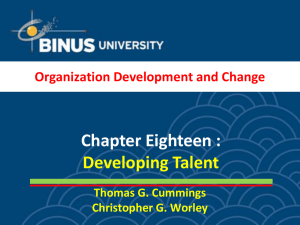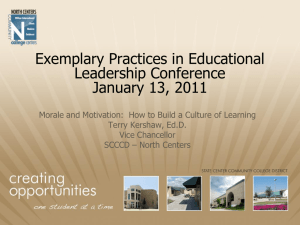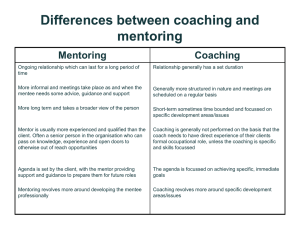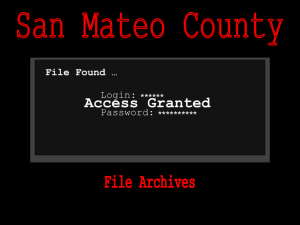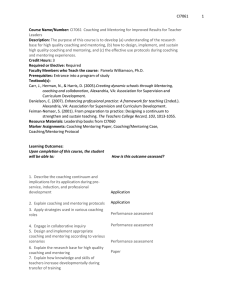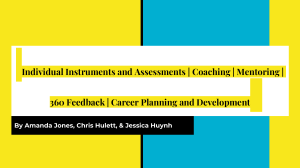Chapter 18 Developing Talent Multiple Choice Questions
advertisement
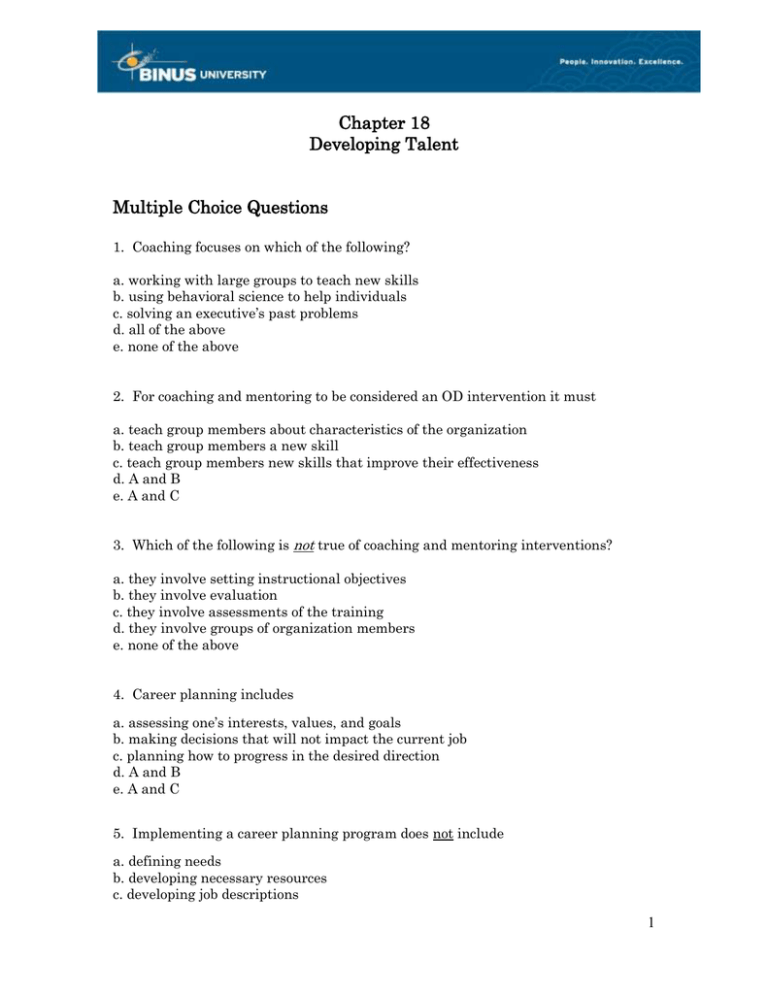
Chapter 18 Developing Talent Multiple Choice Questions 1. Coaching focuses on which of the following? a. working with large groups to teach new skills b. using behavioral science to help individuals c. solving an executive’s past problems d. all of the above e. none of the above 2. For coaching and mentoring to be considered an OD intervention it must a. teach group members about characteristics of the organization b. teach group members a new skill c. teach group members new skills that improve their effectiveness d. A and B e. A and C 3. Which of the following is not true of coaching and mentoring interventions? a. they involve setting instructional objectives b. they involve evaluation c. they involve assessments of the training d. they involve groups of organization members e. none of the above 4. Career planning includes a. assessing one’s interests, values, and goals b. making decisions that will not impact the current job c. planning how to progress in the desired direction d. A and B e. A and C 5. Implementing a career planning program does not include a. defining needs b. developing necessary resources c. developing job descriptions 1 d. developing a career planning strategy 6. Job workshops, self-development materials, and counseling are basic methods used to aid individual a. communication b. career planning c. goal setting d. conflict management e. mentoring 7. Which of the following is not a distinct career stage? a. the growth stage b. the establishment stage c. the maintenance stage d. the withdrawal stage 8. Which of the following is not part of a management and leadership development program? a. b. c. d. build leadership skills socialize managers and leadership in organization values help execute strategic change agendas develop an organization’s strategic plan 9. Which of the following criteria are important when assessing the outcome of management and leadership development interventions? a. b. c. d. e. participants initial reactions participant behaviors during job activities improvements in the participant’s or organization’s effectiveness all of the above none of the above True/False Questions 10. Many organizations have discovered that organizational growth and effectiveness require career development programs. 11. Career planning is generally considered the responsibility of the employer. 2 12. Integrating “career planning” with human resource planning can help merge employees’ needs with those of the organization. 13. Coaching is a skill that any manager can develop. 14. People at the “advancement stage” are concerned with helping newer employees get established and grow in their career. 15. In contrast to other career stages, organizations have been effective in helping employees cope with the “withdrawal” stage. Essay Questions 16. Describe the four career stages discussed in this chapter. Discuss how various individual employee development interventions might apply to each stage. 17. How do coaching and mentoring contribute to leadership development? 18. Compare and contrast leadership development interventions with career development interventions? In what areas and activities might they overlap? 3
